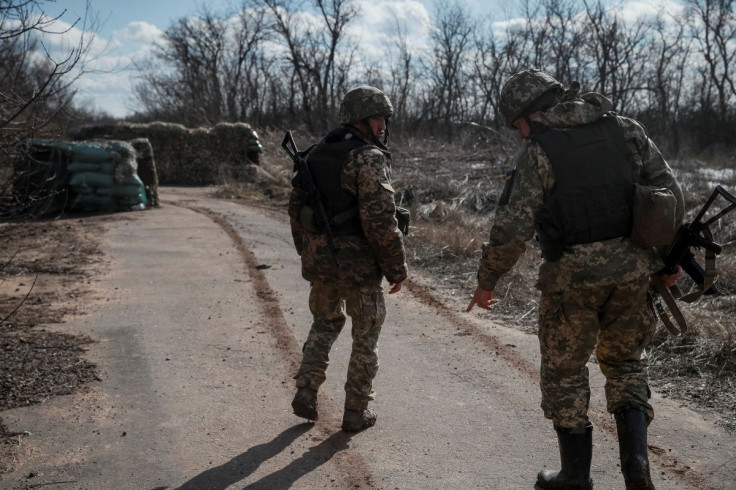Putin Recognises Ukraine Rebel Regions, Sends Troops On What Moscow Calls Peacekeeping Mission

Russian President Vladimir Putin recognised two breakaway regions in eastern Ukraine as independent on Monday and ordered the Russian army to launch what Moscow called a peacekeeping operation into the area, upping the ante in a crisis the West fears could unleash a major war.
Putin told Russia's defence ministry to deploy troops into the two regions to "keep the peace" in a decree issued shortly after he announced recognition for Russia-backed separatists there, drawing U.S. and European condemnation and vows of new sanctions.
It was not immediately clear whether the Russian military action was the start of an invasion of Ukraine that the United States and its allies have warned about for weeks. There was no word on the size of the force Putin was dispatching, when they would cross the border and exactly what their mission would be.
In a lengthy televised address, Putin, looking visibly angry, described Ukraine as an integral part of Russia's history and said eastern Ukraine was ancient Russian lands and that he was confident the Russian people would support his decision..
Russian state television showed Putin, joined by Russia-backed separatist leaders, signing a decree recognising the independence of the two Ukrainian breakaway regions along with agreements on cooperation and friendship.
Defying Western warnings against such a move, Putin had announced his decision in phone calls to the leaders of Germany and France earlier, both of whom voiced disappointment, the Kremlin said.
Moscow's action may well torpedo a last-minute bid for a summit with U.S. President Joe Biden to prevent Russia from invading Ukraine. The rouble extended its losses as Putin spoke, at one point sliding beyond 80 per dollar.
Biden will issue an executive order soon prohibiting "new investment, trade, and financing by U.S. persons to, from, or in" the two breakaway regions, the White House said. It will "also provide authority to impose sanctions on any person determined to operate in those areas of Ukraine," White House spokesperson Jen Psaki said in a statement.
Psaki said measures being rolled out in response to Putin's decree were separate from sanctions the United States and its allies have been readying if Russia invades Ukraine.
U.S. Secretary of State Antony Blinken said the executive order "is designed to prevent Russia from profiting off of this blatant violation of international law."
Dutch Prime Minister Mark Rutte said European Union countries have agreed to impose a limited set of sanctions "targeting those who are responsible" for Russia's recognition of the rebel regions.
British foreign minister Liz Truss said in a Twitter post that on Tuesday the government will announce new sanctions on Russia in response to Putin's decision.
NATO Secretary-General Jens Stoltenberg accused Russia of continuing to fuel the conflict in eastern Ukraine and "trying to stage a pretext" for a further invasion. Russia annexed Crimea from Ukraine in 2014.
In his address, Putin delved into history as far back as the Ottoman empire and as recent as the tensions over NATO's eastward expansion - a major irritant for Moscow in the present crisis.
With his decision, Putin brushed off Western warnings that such a step would be illegal, would kill off peace negotiations and would trigger sanctions against Moscow.
"I deem it necessary to make a decision that should have been made a long time ago - to immediately recognise the independence and sovereignty of the Donetsk People's Republic and the Luhansk People's Republic," Putin said.
He said earlier that "if Ukraine was to join NATO it would serve as a direct threat to the security of Russia."
© Copyright Thomson Reuters {{Year}}. All rights reserved.





















